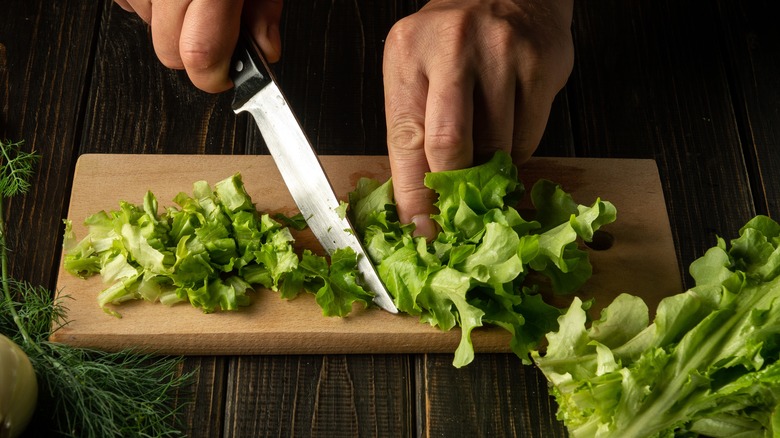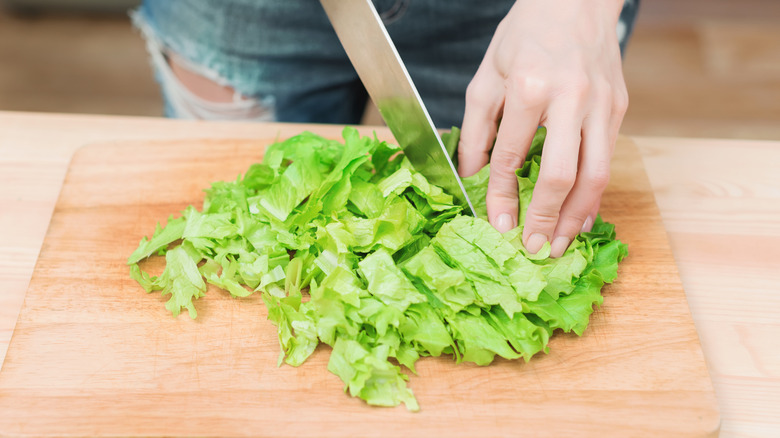Do Metal Knives Really Turn Your Salad Greens Brown?
While some kitchen hacks are helpful, others are a little confusing or lack proof, which could have you changing up your routine for no real reason. And not cutting salad greens with a metal knife is one of those cooking hack myths you probably shouldn't pay attention to. If you've heard through the grapevine that you shouldn't cut salad greens with a metal knife because it can cause them to brown, you can stop digging through your drawers for another type of cutlery.
It turns out there isn't much truth to this rumor; lettuce leaves will brown after several days, no matter what. America's Test Kitchen even did a study testing a stainless steel blade against a plastic blade. While the leaves cut with stainless steel did brown sooner, it was only one day earlier (a whopping 12 days after they were first cut) than those cut with the plastic knife, which browned after 13 days.
It's perfectly fine to slice salad greens with a metal knife
There's no need to buy a special knife just to chop up some lettuce or arugula. However, if you want to squeeze every last drop of freshness from those leaves, the best method might not be cutting them at all. America's Test Kitchen found that torn leaves, which weren't touched by any utensil, were the last leaves to brown; they lasted 14 days. Tearing the leaves helps them "break along their natural fault lines," America's Test Kitchen explains, which preserves more cells and ultimately delays browning. It could be the best method if you don't plan to use salad greens within two weeks of cutting them.
Lettuce turns brown due to a chemical process called oxidation, which occurs when chemicals within the produce react with enzymes. To keep it simple, the two elements mix, which causes browning on some types of produce, such as lettuce and apples.
The best ways to prevent lettuce from browning
While the cutting utensil might not matter, there are ways you can slow the produce's natural oxidation process. Storage is extremely important; keep the lettuce in a sealable bag or container to prevent too much air exposure. The bag should have a little bit of air in it, as well as something like a paper towel to help absorb moisture; both things will keep the lettuce fresh for as long as possible.
If you can, you should avoid cutting or shredding the lettuce until you're ready to use it. Because cutting or shredding damages cells and exposes them further to that oxidation process, avoiding so until the last minute will keep the salad greens as fresh as possible.
Aside from browning, prevent those leaves from getting soggy with quick fixes, such as not adding salad dressing or salt until you're ready to eat, and not adding anything too hot, such as cooked chicken, to the greens until it has cooled off.


